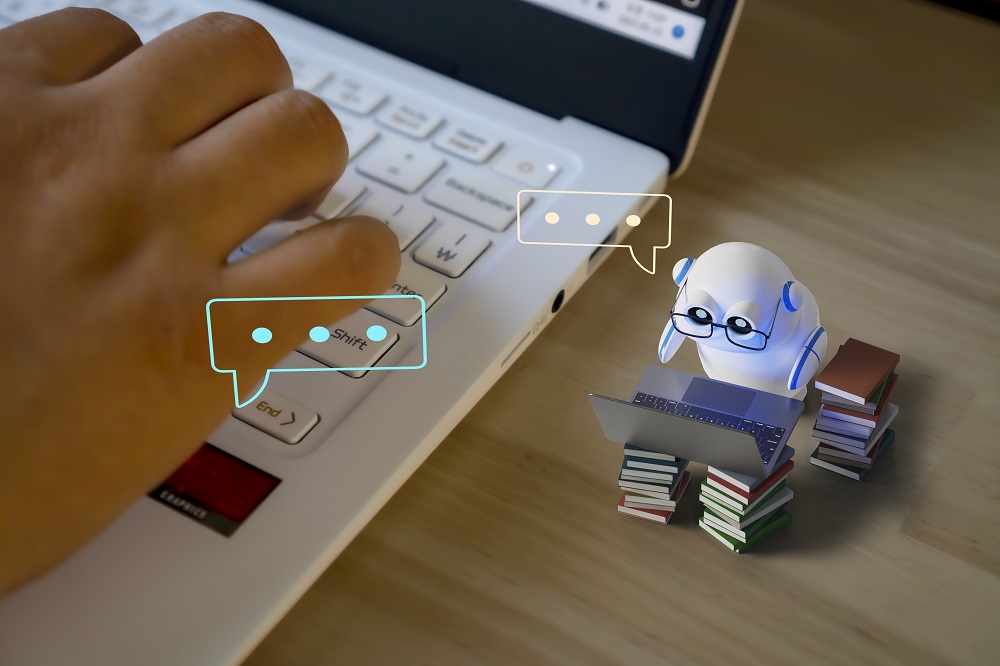ChatGPT at work is revolutionising today’s digital age, as the integration of artificial intelligence (AI) technologies, including ChatGPT, becomes increasingly common in the workplace. While AI brings numerous benefits to organisations, it also raises concerns regarding the appropriate use of AI systems and the potential misuse of confidential information.
Consider the latest announcement by Microsoft: the integration of Copilot into Microsoft 365. Copilot will work alongside users within Microsoft 365 apps like Word, Excel, PowerPoint, Outlook, and teams. It includes a feature called Business Chat, which extends across your calendar, emails, chats, documents, meetings, and contacts.
Establishing a comprehensive company policy that addresses the use of ChatGPT and AI at work is crucial to ensure ethical behaviour, protect sensitive data, and maintain a productive work environment. Outlined below are key considerations for drafting a workplace policy, including examples of confidential information to avoid using in ChatGPT and the potential consequences of misusing such information.
1. Positive Ways to Use ChatGPT and AI at Work
Training and Onboarding:
ChatGPT can support new employees during the onboarding process by answering their questions, providing training materials, and offering guidance. It can offer personalised learning recommendations and assist in knowledge transfer.
Content Generation:
ChatGPT can be used to generate content for various purposes, such as writing blog posts, drafting emails, creating social media updates, or developing marketing materials. It can help with brainstorming ideas, proofreading, and improving the overall quality of written content.
Language Translation:
If your workplace deals with international clients or colleagues, ChatGPT can assist in real-time language translation. It can help overcome language barriers and enable effective communication across different languages.
Enhancing Customer Service:
ChatGPT and other AI systems can serve as a virtual assistant to handle customer queries, providing real-time responses and assistance. It can handle frequently asked questions, provide troubleshooting tips, and offer personalised recommendations.
Automating Repetitive Tasks:
AI can be employed to automate routine and time-consuming tasks, allowing employees to focus on more value-added activities. This boosts productivity, efficiency, and employee satisfaction.
Data Analysis and Insights:
AI technologies can analyse vast amounts of data, providing valuable insights for decision-making, identifying patterns, predicting trends, and driving innovation.
Workflow Optimisation:
AI can optimise workflows by streamlining processes, identifying bottlenecks, and suggesting improvements, thereby improving overall operational efficiency.
2. Confidential Information to Avoid sharing with AI
Personal Identifiable Information (PII):
Employees should refrain from using PII, including tax ID’s, addresses, phone numbers, or any other personally identifiable information of individuals. Unauthorised use or disclosure of PII can lead to severe privacy breaches and sometimes has legal consequences.
Intellectual Property (IP):
Confidential company information, trade secrets, copyrighted material, or any proprietary data should not be shared with ChatGPT or any other AI system. Protecting intellectual property is crucial for maintaining a competitive advantage and safeguarding business interests.
Financial Data:
Sensitive financial information, such as bank account numbers, credit card details, or undisclosed financial reports, must not be shared with ChatGPT. Unauthorised disclosure of financial data can result in financial losses and damage to the organisation’s reputation.
Health Information:
Medical records, patient data, or any other personally identifiable health information should not be utilised in ChatGPT. Breaches of health information can lead to legal consequences and are a violation of privacy laws.
3. Harmful Ways to Use AI at Work
Unfair Bias:
If AI systems are not properly designed and tested, they may inadvertently perpetuate biases present in training data, leading to unfair treatment of employees, customers, or stakeholders. This can result in discrimination claims and damage to the organisation’s reputation.
Invasion of Privacy:
AI technologies should not be used to intrude on employee privacy rights, such as unauthorised monitoring of communications, personal devices, or sensitive personal information.
Unethical Data Collection:
Using AI at work should not involve unethical data collection practices. This includes obtaining personal information without consent, collecting excessive or irrelevant data, or leveraging AI to exploit user privacy for unauthorised purposes. Such practices not only violate privacy regulations but can also lead to distrust among employees and customers, resulting in reputational damage and potential legal repercussions.
Conclusion:
When implementing ChatGPT and AI at work, having a well-defined company policy is essential to guide employees in the appropriate use of these technologies. The policy should clearly outline the confidential information to be avoided while using ChatGPT, emphasising the potential consequences of misusing such information. Additionally, the policy should highlight the positive ways in which AI can enhance productivity, customer service, data analysis, and workflow optimisation. By establishing ethical guidelines and fostering responsible AI usage, organisations can harness the benefits of AI while safeguarding privacy, protecting sensitive information, and promoting a positive work environment.
You may also like:
Recruitment revelation: applicants are customers too
How to maximise opportunities as an Accredited Employer
